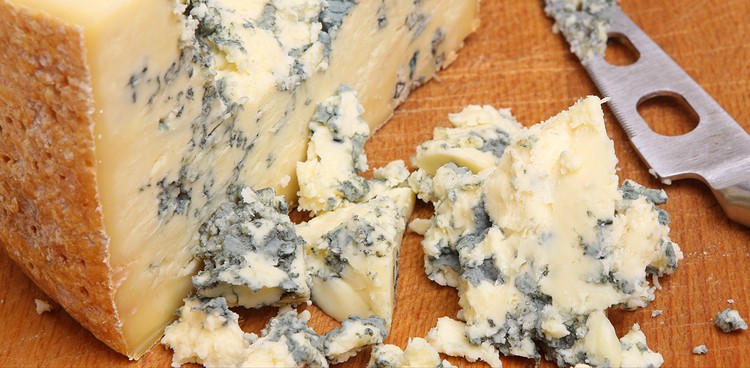
By now, you’ve probably caught wind of the referendum that broke away Britain from the rest of the European Union. Many onlookers—British and otherwise—have been left scratching their heads and feeling uneasy, wondering what ramifications the divorce will have on the global economy, Scotland’s EU status, immigration, and national security.
The upheaval doesn’t stop at the political sphere, though. As it stood, Britain’s membership in the EU allowed for protection of location-specific foods under Protected Geographical Status laws. With the separation, Britain’s specialty foods stand to lose these protections.
One of the most notable potential casualties of the Brexit is the protection of Stilton. Currently, the beautiful blue is one of 73 protected foods in Britain, and it can only originate in Derbyshire, Leicestershire, and Nottinghamshire. Separation from the rest of the EU could mean that any cheesemaker could label their product “Stilton,” rendering the name legally meaningless.
“The obsession with a threat to national identity… results in Brexiters thinking they’re shedding off what is essentially an imagined burden,” says Pelin Keskin, contributor to Eater, summing up the inherent conflict of interest in Britain’s departure from the European Union. “Instead they’ll be shedding off a real part of the identity they’re claiming to protect.”
Stilton isn’t the only household name in danger—Scotch, Cumberland sausage, Cornish pasties, and Plymouth gin are just a few of the many other products that will soon be vulnerable to imitators. The restaurant industry, too, will suffer the effects of restricted immigration, standing to lose 28 percent of its workforce.
But not all British food producers see Brexit as a harbinger of doom. George Eustice, the Conservative food and farmining minister, thinks that splitting from the EU won’t prevent the country from “[negotiating] bilateral agreements” but will allow the UK to have more control over its own farming and food production industries.
The majority of the Food and Drink Federation, though, would rather stay in the European Union and keep their businesses reliably safe. However the Brexit narrative continues to unfold, we hope the British food industry stays strong. And so does Stilton.
Feature Photo Credit: Joe Gough via Shutterstock



